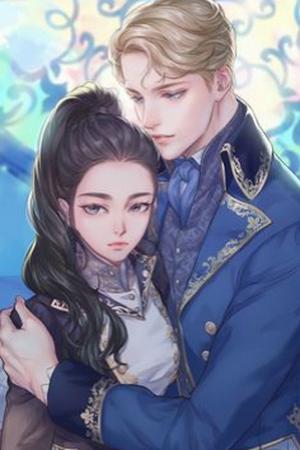Novel Name : I'm in Hollywood
I'm in Hollywood Chapter 298: Oscar (3)
Chapter 298: Oscar (3)
Although he held no expectations for the award, Eric's expression still carried a hint of nervousness. However, he also reassured himself in his mind that he was still young and that winning the award too early wouldn't be a good thing.
On stage, after introducing the nominees for Best Original Screenplay, Jane Fonda scanned the crowd briefly. Eric noticed that her gaze lingered on him for a moment, whether intentionally or not, but before he could confirm anything, she lowered her head, opened the envelope, and took out the card with the winner's name. Her face briefly registered surprise before breaking into a smile and looking at Eric again.
Eric was certain that this time it wasn't his imagination. If that previous glance could have been accidental, then this one surely was intentional...
His heart racing, Eric unconsciously clenched his fists and stared intently at Jane Fonda.
Jane Fonda seemed to sense the growing impatience of the audience and, without further ado, leaned into the microphone and announced, "The Oscar for Best Original Screenplay goes to: 'The Others'."
The most unlikely thing had happened, most of the people in the Los Angeles Music Hall were Hollywood veterans, and many of them wore expressions of surprise upon hearing the name.
Although he had received a hint beforehand, Eric still stared in disbelief until the people around him began to stand up, he followed suit.
Applause erupted like thunder.
At the same time, an even more surprising scene also unfolded in the award hall.
As Eric stood up, more people followed suit, including the crew of "The Others," "Sleepless in Seattle," "Crimes and Misdemeanors," "Pretty Woman," and other films associated with the Firefly Production Company. The number of people standing reached as far as five rows around Eric.
Although some of the people who stood up soon realized that it was inappropriate, sitting down again would have been even worse. So, they stayed standing.
Eric briefly hugged a few of the people around him before feeling the pressure of time. He quickly shook hands with the others who stood up, even those who were too far away to do more than touch fingers.
Even with this, it took nearly a minute for Eric to successfully make it onto the stage.
Meanwhile, in the audience, the original expressions of doubt, shock and helplessness had mostly turned to envy. A small award for Best Original Screenplay had caused such a commotion, and from then on, no one dared to underestimate Eric's position in Hollywood.
Eric's acceptance speech was prepared in advance, and it was easier to say than when he received the award for Best Original Score an hour ago. Even as he spoke, Eric couldn't help but wonder how he had managed to win the award.
There was no doubt that this was a result of the Oscar's distribution of meat.
Eric felt that he had underestimated the Oscars, and with his current influence in Hollywood, if he had come away empty-handed in a situation where he had been nominated for two awards, the fairness of the Oscars would once again be questioned.
Eric knew that this time, the questioning would not only come from the media, but perhaps also from the general public. The reason was because of that incident from before. Eric had already gone through a malicious suppression scandal, and if the Oscars let him leave empty-handed despite his two nominations for best screenplay, then the public would inevitably have some negative associations, resulting in disappointment towards the Oscars.
As for why he didn't receive the Best Adapted Screenplay award for "Scent of a Woman", a film with a greater likelihood of winning, but instead received the Best Original Screenplay award for "The Others", Eric understood that this was probably the result of a series of behind-the-scenes games. Although he was very interested in the series of inside stories, Eric knew that he hadn't yet reached a level where he could touch upon the internal games of the Oscar awards.
Thinking this way, he followed Jane Fonda and the award presenters into the backstage. The staff came forward politely to take the small golden statue from Eric's hand, which did not yet have a nameplate, and pinned on the gold nameplate for him.
"Mr. Williams, congratulations," Jane Fonda extended her hand with a smile towards Eric.
"Ms. Fonda, thank you for the tip you just gave me," Eric replied, trying to maintain a good face despite his anxiety. "I've watched many of your movies, 'Coming Home' and 'Klute' are great, but my favorite is 'The China Syndrome', the portrayal of family in the film is very moving."
"Thank you for liking it," Jane Fonda's smile remained, "Mr. Williams, you're probably going to have a celebration party next, right?"
Eric's expression moved slightly, quickly realizing that this woman was not just passing by to greet him. Although he didn't know her purpose, being able to establish some connections with a famous Hollywood family was definitely beneficial for him.
Eric hesitated for a moment, then said, "Yes, Ms. Fonda, if you have the time, we would be delighted to have you come to our post-ceremony party. It will be held on the third floor of the Beverly Hills hotel."
"I'll be there," Jane Fonda nodded, knowing that Eric was also eager to return to the hall. She didn't say much more and quickly left.
When Eric returned to the award hall, he was disappointed to find that the director of "Born on the Fourth of July," Oliver Stone, was giving his acceptance speech on stage. Nearby, Al Pacino from the cast of "Scent of a Woman" gave Eric a sympathetic look. As for Martin Brest, Eric couldn't read his expression, but he could only assume it was one of disappointment.
Speaking of "Born on the Fourth of July," it reminded Eric of the unfortunate Tom Cruise. It was only after watching this movie that Eric remembered that Cruise had originally been nominated for his first Oscar for Best Actor for this film.
Unfortunately, due to his role in "The Silence of the Lambs," Cruise missed out on the movie. And while both the firefly and Cruise himself had tried to fight for a nomination for best actor, they were unsuccessful. Although Tom Hanks won a Golden Globe for best actor in "The Silence of the Lambs," he did not reach the Oscars. Therefore, Eric, who met Cruise a few days ago, had never seen him give him a good face.
Cruise had already received enough pay for his role in "The Silence of the Lambs," so Eric, although he was a bit helpless about Cruise not getting an Oscar nomination for best actor, did not think he owed him anything. After all, Cruise's salary was significantly higher than Hanks'.
Thinking this way, the previous winner of the best actress award, Judi Foster, began to introduce the nominations for best actor. Listening to the woman on stage, Eric suddenly thought again that if "The Silence of the Lambs" had been produced and released last year, Judi Foster would probably have won the Oscar for best actress.
It has to be said that this is a regret.
"The nominees for Best Actor are: Morgan Freeman, 'Driving Miss Daisy'; Al Pacino, 'Scent of a Woman'; Daniel Day-Lewis, 'My Left Foot'; Kenneth Branagh, 'Henry V'; and Robin Williams, 'Dead Poets Society'."
As each nominee was announced, a clip of their respective films played on the large screen behind Judi Dench.
Eric looked over at Al Pacino, who sat with a slightly tense posture. He could understand some of Pacino's emotions; since starting his acting career 17 years ago, Pacino had received five Oscar nominations but had yet to win. It was not an exaggeration to say that the Oscars owed him one.
As for Daniel Day-Lewis, the previous year's Best Actor winner, his performance was undoubtedly outstanding, but his disadvantage was clear. Firstly, being British, he was at a disadvantage with the Academy's bias towards American actors. There was no denying it.
Furthermore, Daniel Day-Lewis was only in his thirties, barely reaching the average age of an Oscar-winning lead actor, making him appear even younger in comparison to the fifty-year-old Al Pacino. Lastly, in terms of experience and connections, Daniel Day-Lewis couldn't possibly compete with Al Pacino who has been in Hollywood for almost twenty years.
Eric reflected that the reason why Daniel Day-Lewis had won the award in his previous life was largely due to luck, as the Oscars had a relatively weak year. Although he couldn't recall all the details, Eric could tell from the current list of nominees that most of the films nominated were the same as in his previous life. However, besides "Born on the Fourth of July" which had some fame due to Tom Cruise's performance, the other films on the list had little impact.
This time, things didn't take Al Pacino by surprise. After Judi Foster opened the envelope, she quickly read out Al Pacino's name. Amidst the thunderous applause, Al Pacino didn't immediately take the stage. Instead, he walked towards the back row where Eric was seated. Realizing what was about to happen, Eric smiled and stood up. Jonathan Demme, who was sitting on the other side of Eric, made way for Al Pacino.
Hello everyone, I hope you are enjoying the story so far. As a translator, I put a lot of time and effort into creating the chapters for your enjoyment. If you find my content valuable and wish to support the continuation of it, I kindly invite you to consider supporting me on Patreon.
Your support will not only help me to continue creating more content but also give you access to new chapters ahead of schedule as a token of appreciation. If you are interested, please visit my Patreon page for more information. https://www.patreon.com/inhollywood
Thank you in advance for your support.
- Index -
Although he held no expectations for the award, Eric's expression still carried a hint of nervousness. However, he also reassured himself in his mind that he was still young and that winning the award too early wouldn't be a good thing.
On stage, after introducing the nominees for Best Original Screenplay, Jane Fonda scanned the crowd briefly. Eric noticed that her gaze lingered on him for a moment, whether intentionally or not, but before he could confirm anything, she lowered her head, opened the envelope, and took out the card with the winner's name. Her face briefly registered surprise before breaking into a smile and looking at Eric again.
Eric was certain that this time it wasn't his imagination. If that previous glance could have been accidental, then this one surely was intentional...
His heart racing, Eric unconsciously clenched his fists and stared intently at Jane Fonda.
Jane Fonda seemed to sense the growing impatience of the audience and, without further ado, leaned into the microphone and announced, "The Oscar for Best Original Screenplay goes to: 'The Others'."
The most unlikely thing had happened, most of the people in the Los Angeles Music Hall were Hollywood veterans, and many of them wore expressions of surprise upon hearing the name.
Although he had received a hint beforehand, Eric still stared in disbelief until the people around him began to stand up, he followed suit.
Applause erupted like thunder.
At the same time, an even more surprising scene also unfolded in the award hall.
As Eric stood up, more people followed suit, including the crew of "The Others," "Sleepless in Seattle," "Crimes and Misdemeanors," "Pretty Woman," and other films associated with the Firefly Production Company. The number of people standing reached as far as five rows around Eric.
Although some of the people who stood up soon realized that it was inappropriate, sitting down again would have been even worse. So, they stayed standing.
Eric briefly hugged a few of the people around him before feeling the pressure of time. He quickly shook hands with the others who stood up, even those who were too far away to do more than touch fingers.
Even with this, it took nearly a minute for Eric to successfully make it onto the stage.
Meanwhile, in the audience, the original expressions of doubt, shock and helplessness had mostly turned to envy. A small award for Best Original Screenplay had caused such a commotion, and from then on, no one dared to underestimate Eric's position in Hollywood.
Eric's acceptance speech was prepared in advance, and it was easier to say than when he received the award for Best Original Score an hour ago. Even as he spoke, Eric couldn't help but wonder how he had managed to win the award.
There was no doubt that this was a result of the Oscar's distribution of meat.
Eric felt that he had underestimated the Oscars, and with his current influence in Hollywood, if he had come away empty-handed in a situation where he had been nominated for two awards, the fairness of the Oscars would once again be questioned.
Eric knew that this time, the questioning would not only come from the media, but perhaps also from the general public. The reason was because of that incident from before. Eric had already gone through a malicious suppression scandal, and if the Oscars let him leave empty-handed despite his two nominations for best screenplay, then the public would inevitably have some negative associations, resulting in disappointment towards the Oscars.
As for why he didn't receive the Best Adapted Screenplay award for "Scent of a Woman", a film with a greater likelihood of winning, but instead received the Best Original Screenplay award for "The Others", Eric understood that this was probably the result of a series of behind-the-scenes games. Although he was very interested in the series of inside stories, Eric knew that he hadn't yet reached a level where he could touch upon the internal games of the Oscar awards.
Thinking this way, he followed Jane Fonda and the award presenters into the backstage. The staff came forward politely to take the small golden statue from Eric's hand, which did not yet have a nameplate, and pinned on the gold nameplate for him.
"Mr. Williams, congratulations," Jane Fonda extended her hand with a smile towards Eric.
"Ms. Fonda, thank you for the tip you just gave me," Eric replied, trying to maintain a good face despite his anxiety. "I've watched many of your movies, 'Coming Home' and 'Klute' are great, but my favorite is 'The China Syndrome', the portrayal of family in the film is very moving."
"Thank you for liking it," Jane Fonda's smile remained, "Mr. Williams, you're probably going to have a celebration party next, right?"
Eric's expression moved slightly, quickly realizing that this woman was not just passing by to greet him. Although he didn't know her purpose, being able to establish some connections with a famous Hollywood family was definitely beneficial for him.
Eric hesitated for a moment, then said, "Yes, Ms. Fonda, if you have the time, we would be delighted to have you come to our post-ceremony party. It will be held on the third floor of the Beverly Hills hotel."
"I'll be there," Jane Fonda nodded, knowing that Eric was also eager to return to the hall. She didn't say much more and quickly left.
When Eric returned to the award hall, he was disappointed to find that the director of "Born on the Fourth of July," Oliver Stone, was giving his acceptance speech on stage. Nearby, Al Pacino from the cast of "Scent of a Woman" gave Eric a sympathetic look. As for Martin Brest, Eric couldn't read his expression, but he could only assume it was one of disappointment.
Speaking of "Born on the Fourth of July," it reminded Eric of the unfortunate Tom Cruise. It was only after watching this movie that Eric remembered that Cruise had originally been nominated for his first Oscar for Best Actor for this film.
Unfortunately, due to his role in "The Silence of the Lambs," Cruise missed out on the movie. And while both the firefly and Cruise himself had tried to fight for a nomination for best actor, they were unsuccessful. Although Tom Hanks won a Golden Globe for best actor in "The Silence of the Lambs," he did not reach the Oscars. Therefore, Eric, who met Cruise a few days ago, had never seen him give him a good face.
Cruise had already received enough pay for his role in "The Silence of the Lambs," so Eric, although he was a bit helpless about Cruise not getting an Oscar nomination for best actor, did not think he owed him anything. After all, Cruise's salary was significantly higher than Hanks'.
Thinking this way, the previous winner of the best actress award, Judi Foster, began to introduce the nominations for best actor. Listening to the woman on stage, Eric suddenly thought again that if "The Silence of the Lambs" had been produced and released last year, Judi Foster would probably have won the Oscar for best actress.
It has to be said that this is a regret.
"The nominees for Best Actor are: Morgan Freeman, 'Driving Miss Daisy'; Al Pacino, 'Scent of a Woman'; Daniel Day-Lewis, 'My Left Foot'; Kenneth Branagh, 'Henry V'; and Robin Williams, 'Dead Poets Society'."
As each nominee was announced, a clip of their respective films played on the large screen behind Judi Dench.
Eric looked over at Al Pacino, who sat with a slightly tense posture. He could understand some of Pacino's emotions; since starting his acting career 17 years ago, Pacino had received five Oscar nominations but had yet to win. It was not an exaggeration to say that the Oscars owed him one.
As for Daniel Day-Lewis, the previous year's Best Actor winner, his performance was undoubtedly outstanding, but his disadvantage was clear. Firstly, being British, he was at a disadvantage with the Academy's bias towards American actors. There was no denying it.
Furthermore, Daniel Day-Lewis was only in his thirties, barely reaching the average age of an Oscar-winning lead actor, making him appear even younger in comparison to the fifty-year-old Al Pacino. Lastly, in terms of experience and connections, Daniel Day-Lewis couldn't possibly compete with Al Pacino who has been in Hollywood for almost twenty years.
Eric reflected that the reason why Daniel Day-Lewis had won the award in his previous life was largely due to luck, as the Oscars had a relatively weak year. Although he couldn't recall all the details, Eric could tell from the current list of nominees that most of the films nominated were the same as in his previous life. However, besides "Born on the Fourth of July" which had some fame due to Tom Cruise's performance, the other films on the list had little impact.
This time, things didn't take Al Pacino by surprise. After Judi Foster opened the envelope, she quickly read out Al Pacino's name. Amidst the thunderous applause, Al Pacino didn't immediately take the stage. Instead, he walked towards the back row where Eric was seated. Realizing what was about to happen, Eric smiled and stood up. Jonathan Demme, who was sitting on the other side of Eric, made way for Al Pacino.
Hello everyone, I hope you are enjoying the story so far. As a translator, I put a lot of time and effort into creating the chapters for your enjoyment. If you find my content valuable and wish to support the continuation of it, I kindly invite you to consider supporting me on Patreon.
Your support will not only help me to continue creating more content but also give you access to new chapters ahead of schedule as a token of appreciation. If you are interested, please visit my Patreon page for more information. https://www.patreon.com/inhollywood
Thank you in advance for your support.
- Index -
Rankings

To Cure the Playboy
Hailey Allen
Read To Cure the Playboy by Hailey Allen. Genre: Chinese novels. Read the full novel online for free hereRecovering from
Love Has its Will by Selena Lewis
Selena Lewis
Read Love Has its Will by Selena Lewis by Selena Lewis. Genre: Chinese novels. Read the full novel online for free hereT
World Teacher – Other World Style Education & Agent
Neko Kouichi
A man who was once called the world strongest agent ended up becoming a teacher after his retirement to train the new ge
Undefeated God of War
方想
Youth, is meant to be used to shed sweat under the sun!Youth, is to continuously engage in battles, and secure the win!
My Entire Class Was Summoned to Another World except for Me
サザンテラス
A god of a different world had abruptly appeared in my classroom and semi-forcibly summoned the entire class to his worl
I Stayed At Home For A Century, When I Emerged I Was Invincible
Halfway Breeze
Chu Xuan transmigrated to a fantasy world and became the young master of a powerful family. He was rebuked for misbehavi
I'm the King Of Technology
Lumydee
Chu Yi dies in a car crash and becomes Landon Barn, the illegitimate son of king Barn, ruler of Arcadina. Because his mo
Kiss Me Goodnight, Mrs. CEO!
黛蜜儿
In the middle of the night, looking at the woman in his embrace, he smiled devilishly, “With your discontentment, do y
A Man Like None Other
Unknown
Read A Man Like None Other by . Genre: Chinese novels. Read the full novel online for free here.Jared Chance seethes wit
One Useless Rebirth
不会下棋
He Bai won the lottery, became rich, and reached the pinnacle of life. Then, he inadvertently took a picture of the Film